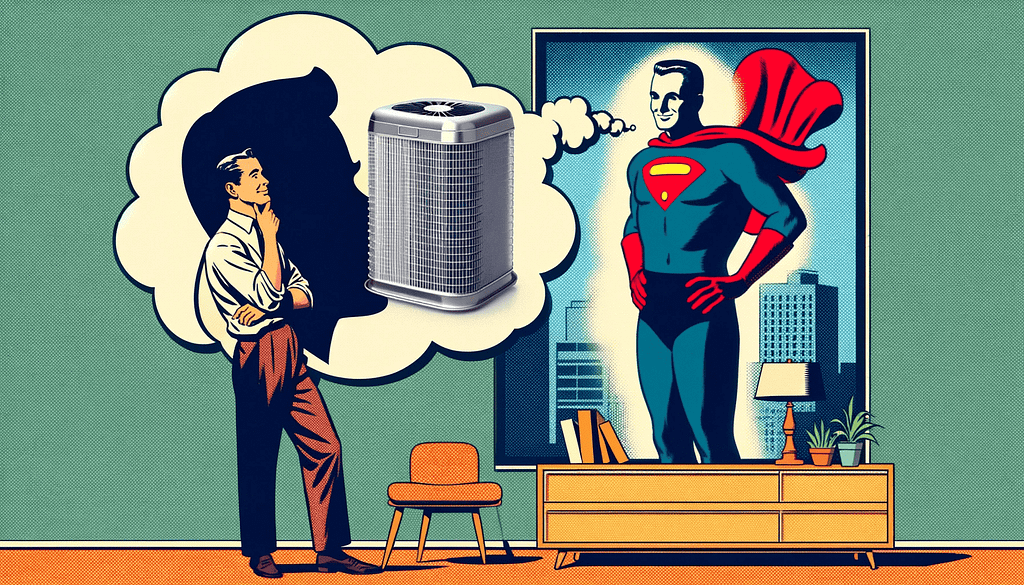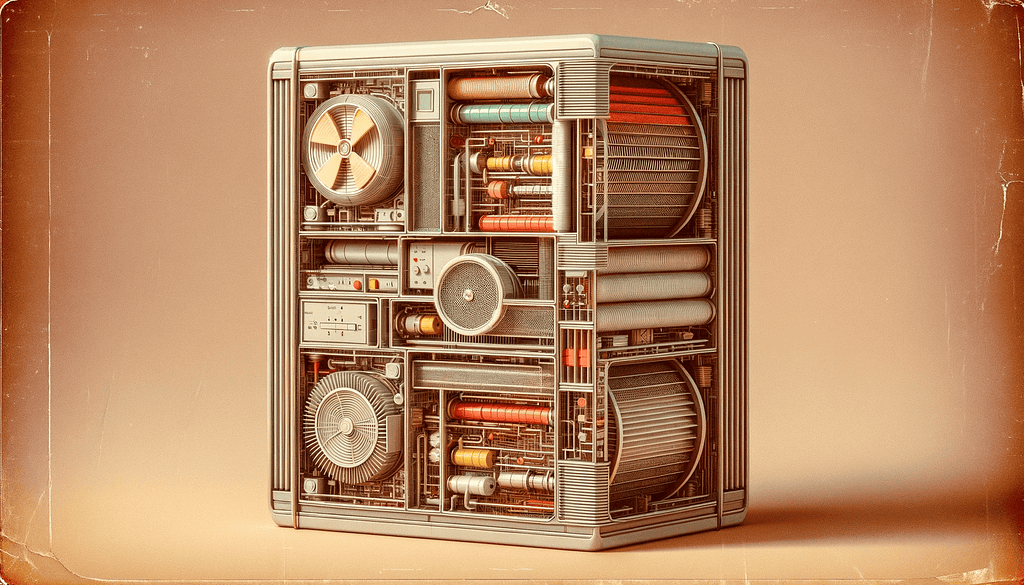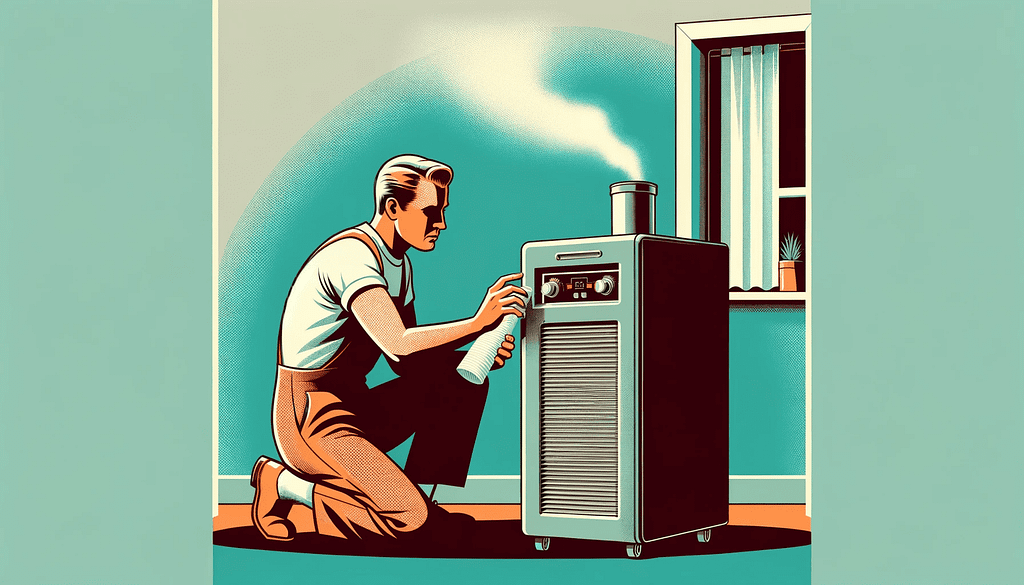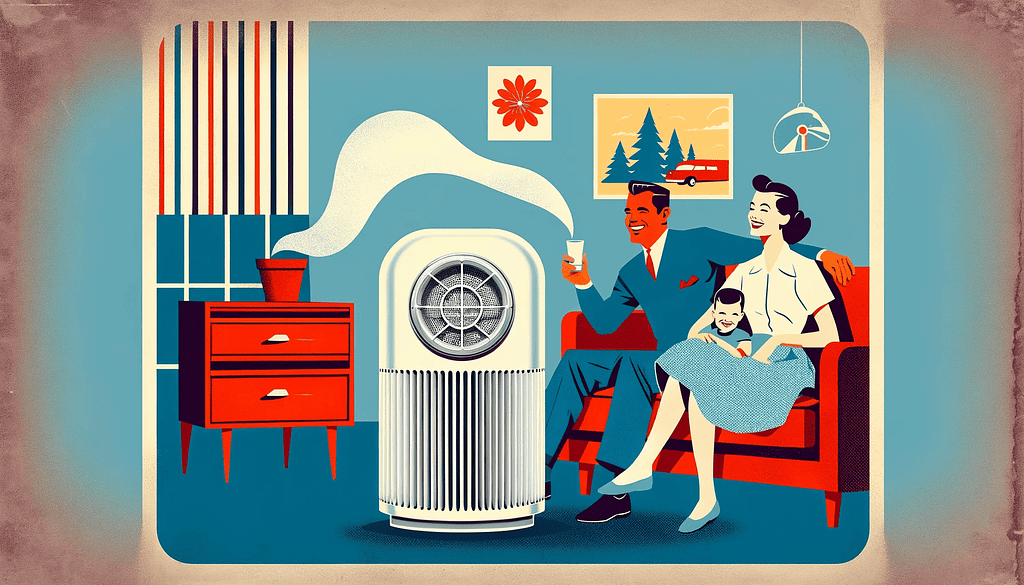Contents
Introduction

Imagine a sentinel in your home, quietly safeguarding the air you breathe. That’s your air purifier, a silent hero in the backdrop of daily life. But even heroes have their limits. How long can you count on your air purifier to keep your air clean? This article delves into the world of air purifiers, dissecting their lifespan and crucial components, like filters. Understanding this ensures healthier air and smarter investments in your home‘s air quality.
Understanding Air Purifiers
Air purifiers, at their core, are like loyal guardians for your indoor air. These devices, often compact and discreet, work tirelessly to remove air pollutants, allergens, and odors. They come equipped with fans that pull in air and push it through one or more filters, trapping the unwanted particles. The cleaned air is then recirculated back into the room. Common filter types include HEPA (High-Efficiency Particulate Air) filters, known for capturing fine particles, and activated carbon filters, which remove odors and gases. Some purifiers also feature UV lights or ionizers, adding an extra purification layer. Maintaining a healthier breathing environment in your living spaces is a continuous renewal cycle.
Lifespan of the Air Purifier Unit

Delving deeper into the lifespan of an air purifier, it’s akin to a marathon runner – built for endurance. A high-quality air purifier, under optimal conditions, can effectively function for 5 to 10 years. This durability stems from the build quality, usage patterns, and maintenance practices.
Top-tier brands often integrate superior materials and cutting-edge technologies, contributing to a longer lifespan. They are designed to withstand continuous use, an essential feature considering air purifiers are often expected to operate round the clock. The longevity of an air purifier also hinges on its electronic components. Motors and fans, the device’s heartbeat, are crucial; their quality can determine how long the unit operates without faltering.
Furthermore, the way you use the air purifier significantly impacts its lifespan. Running it constantly at high speeds or in overly polluted conditions can strain the system, potentially shortening its life. Conversely, a purifier used judiciously and in cleaner environments may enjoy a longer lifespan.
Routine maintenance can’t be overstated in its importance. This involves cleaning and replacing filters as recommended, ensuring that vents and grills are dust-free, and periodically checking for mechanical issues. An unattended purifier laden with accumulated dust and debris works harder to circulate air, leading to quicker wear and tear.
In summary, the lifespan of an air purifier is not just a factor of its inherent quality but also how it’s used and cared for. A well-maintained air purifier is a long-lasting investment and a testament to its owner’s commitment to maintaining a healthy indoor environment.
Filter Types and Their Lifespans
The soul of an air purifier lies in its filters, each type playing a unique role in air purification. The most common is the HEPA filter, renowned for capturing 99.97% of particles as small as 0.3 microns. These include dust, pollen, and smoke particles. However, HEPA filters don’t last forever. Typically, they need replacement every 6 to 12 months, depending on usage and air quality.
Next, we have activated carbon filters, the unsung heroes in eliminating odors and gases. They absorb volatile organic compounds (VOCs) and unpleasant smells, making them a must-have for homes in urban or industrial areas. Their lifespan is shorter, often requiring replacement every 3 to 6 months.
Pre-filters, often found in conjunction with HEPA filters, catch larger particles. These extend the life of HEPA filters by preventing them from clogging up too quickly. They are usually washable and can last several months to a year before needing a replacement.
Some purifiers also include specialized filters like UV filters or ionizers. UV filters use ultraviolet light to kill bacteria and viruses, and their effectiveness depends on the bulb’s lifespan, usually around a year. On the other hand, Ionizers don’t have a traditional filter to replace but may need regular maintenance to keep them functioning optimally.
It’s crucial to understand that the lifespan of these filters can vary significantly based on environmental factors and usage. A home with pets, high levels of pollution, or frequent smoking will need more frequent filter changes. Regularly replacing and maintaining filters is critical to ensuring your air purifier works effectively and provides clean, healthy air.
Factors Affecting the Lifespan of Air Purifiers

The longevity of air purifiers and their filters is not just a matter of time; it’s a dance with various environmental and usage factors. Firstly, the air quality in your area plays a pivotal role. Homes in urban or industrial areas or regions with high pollen counts will see their air purifiers working overtime. This increased workload can shorten the lifespan of both the machine and its filters.
Usage patterns are equally influential. Running your air purifier continuously on high settings accelerates wear and tear, like revving a car engine incessantly. Conversely, sporadic or light use can extend the unit’s lifespan. It’s about balancing effective air purification and judicious device use.
Maintenance, often overlooked, is a critical player in this longevity narrative. Regular cleaning of the unit and its vents, timely filter replacement, and keeping an eye out for any mechanical issues can significantly prolong the life of your air purifier. It’s akin to nurturing a plant; proper care leads to a longer, healthier life.
The type of purifier also matters. Models with more complex features like multiple fan speeds, automated sensors, or additional purification technologies might require more frequent upkeep. The complexity of these features can sometimes introduce more points of potential failure or wear.
Lastly, environmental factors like humidity and temperature can affect the purifier and its filters. High humidity can lead to filter clogging and mold growth, while extreme temperatures can stress the electronic components.
In essence, the lifespan of air purifiers is not predestined. It’s shaped by how and where you use them and the care you invest in their maintenance.
Ensuring Longevity: Optimal Care for Your Air Purifiers
Ensuring your air purifier lives a long and efficient life is akin to nurturing a valuable relationship. It requires attention, care, and regular check-ups. First and foremost, follow the manufacturer’s guidelines for maintenance. This includes adhering to recommended filter replacement schedules. Remember, a clogged filter reduces efficiency and can strain the purifier’s motor.
Regular cleaning is crucial. Dust off the exterior, clean the air intake and exhaust grills and gently vacuum the pre-filter (if your model has one). This prevents dust from entering the inner workings of the machine, which can reduce its efficiency and lifespan.
Be mindful of where you place your air purifier. Avoid areas with high humidity or extreme temperatures, and keep them away from direct sunlight. Also, ensure it’s placed where air can circulate freely around it. Poor placement can restrict airflow and make the unit work harder, leading to wear and tear over time.
Monitoring indoor air quality can also help maximize your purifier’s lifespan. By understanding the types of pollutants and their levels in your home, you can adjust the purifier’s settings accordingly, avoiding overuse.
Additionally, investing in a purifier with smart features like automatic sensors can be beneficial. These sensors adjust the purifier’s operation based on real-time air quality, ensuring efficient use and potentially extending the unit’s life.
Lastly, don’t forget about warranty and professional services. Keeping up with warranty requirements and seeking professional help for technical issues can save you from hefty repair costs and ensure your air purifier is always in top-notch condition.
Adopting these practices allows your air purifier to remain a steadfast guardian of indoor air quality for years.
Conclusion
In the grand scheme of indoor air quality, your air purifier stands as a silent champion. Its lifespan, influenced by various factors, hinges on the care and understanding you invest in it. Regular maintenance, appropriate usage, and understanding the nuances of different filters all play a role in ensuring your air purifier remains an effective ally against pollutants. Remember, an air purifier is more than a household appliance; it’s a commitment to a healthier living environment. By nurturing this essential tool, you ensure it continues providing clean, breathable air for years.



Pingback: Optimizing Air Purifier Placement for Healthier Homes
Pingback: Optimizing Air Purifier Use for Health and Wellbeing
I simply needed to thank you very much once more. I’m not certain what I might have used without those tips and hints contributed by you regarding this area. It truly was a very daunting difficulty for me, however , being able to view this professional technique you resolved it forced me to jump for fulfillment. Now i am grateful for your advice and in addition pray you comprehend what an amazing job that you’re providing teaching many others thru a web site. Most probably you’ve never met any of us.